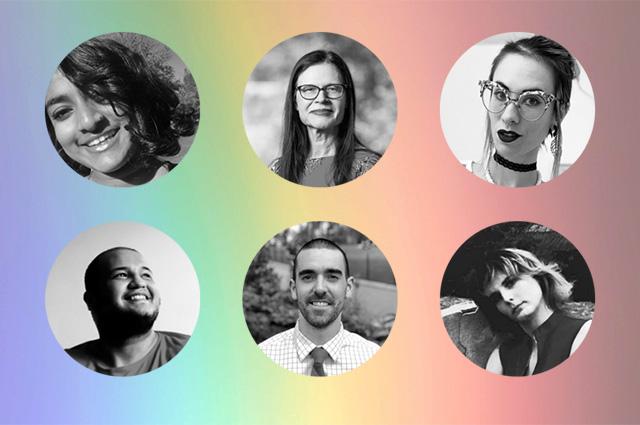-
About
-
Academics
- Physician Assistant
- Special Master’s (MBS)
-
Admissions & Financial Aid
- Tuition & Fees
-
Student Life
-
Research
- Research Labs & Centers
-
Local & Global Engagement
- Global Health Program
My Story: Celebrating LGBTQ Pride
Tufts students, faculty, and staff describe being visible, fighting discrimination, and finding joy in community

To help celebrate Pride Month, Tufts students, faculty, and staff talk about their LGBTQ journeys, what they have learned, and what they want others to know about their experiences.
Ryan Ahern, M23
As a member of the queer community and a future physician, I think I will bring something to a clinical encounter with LGBTQ patients that a non-queer physician may not: a heightened sensitivity to the identifiers and language of gender and sexual identity and the power they possess.
For example, imposing identifiers like Mr. or Mrs. can immediately alienate a patient from trusting you with their care. A patient’s gender, sexuality, and sexual history are essential information to tailor care to their needs and require a safe and open space to discuss them.
I have experienced that feeling of identity erasure from providers, and that motivates me to constantly reflect on biases I may hold and to appreciate the incredible complexity of patients’ identities and experiences. This understanding is foundational to treating a patient as a whole person.
Historically, the practice of medicine was not focused on patient-centered care and was not attuned to the needs of marginalized populations. It was created to treat a select group of patients who are the ones depicted in our anatomy textbooks: white cisgender males and females.
Medical students learn practices that perpetuate harm to marginalized populations, such as pathologizing sexual minorities and race corrections in clinical algorithms that assess kidney and lung function. Studies repeatedly show that medical students and providers believe that Black patients have a higher threshold of pain than white patients. These embedded biases often take resources away from Black patients and hinder access to lifesaving care such as organ transplants.
My colleagues and I educate ourselves on the ways that medicine as a profession has accommodated racist and patriarchal beliefs. Only when providers recognize this can LGBTQ and BIPOC have equitable access to supportive health care. I will strive to stay abreast of important changes happening in health care—changes ensuring that medical knowledge, tools, and resources are employed justly to all persons and that access to healthcare is a human right.
Read more stories on Tuft Now.